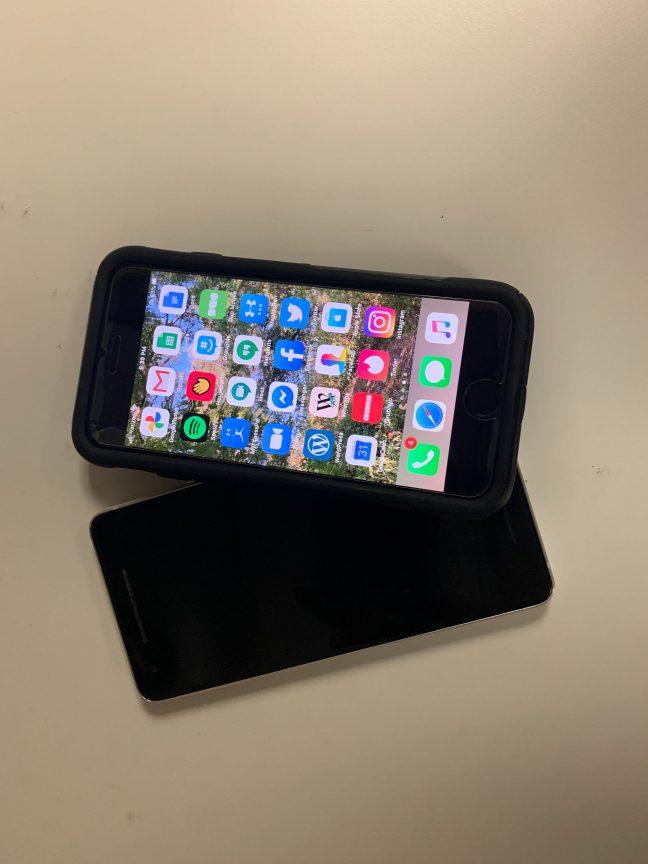I think we all know we are addicted to our phones. Not all of us are willing to admit it, but if you feel obligated to check your phone right when you wake up or pause what you are saying when your phone buzzes, you are addicted.
It’s weird to even say that word, “addiction.” You only hear it associated with substance abuse, but, well, we are abusing our phones. We cannot get enough of them.
I watched “The Social Dilemma” over the weekend, a new documentary released on Netflix explaining the social and cultural consequences of social media. I put my phone away to watch the movie, but felt wrong when my hand itched to pick it up. I paused the movie to check my phone once.
‘The Bomb’ documentary visualizes realities of nuclear weapons
This is exactly what they are talking about! I put it away, but in the back of my mind, I felt compelled to see the familiarity of notifications popping up on my lock screen.
This documentary is an absolute must-watch. It is not only eye-opening, but it is so telling of the technological industry. The testimonies given by computer scientists, marketers and developers of the devices we are constantly glued to, don’t allow their own children to have them. They don’t even use the product they create. That should be our first red flag.
The documentary is a mashup of the testimonies and warnings from major seats in these famous tech companies, like Google, Instagram, Facebook and Twitter, actively speaking out about how harmful social media has become to society and younger generations. They also speak out about the true complexity of the inner workings of these devices — these devices know everything about you.
These devices know your personality, your hobbies, your mood that day, who is in proximity to you — and use your own psychology to keep you glued to that app, where you see strategically placed advertisements gaining exposure, which in turn, pays the app. When something is free, like our social media apps, we become the product.
The documentary also includes short clips of visual examples of what social media is doing to our youth. It follows the story of a teenage boy misled by political ads on his social media and caught in his own echo chamber of thoughts, illustrating what social media can do to democracy and society.
At the end of the documentary, the creators share tips on how to regain our mind, our self-will and how to get rid of that itch that tells us we need to check our phones. It is a dopamine and control cycle we are all mindlessly caught up in.
The creators or workers associated with major social apps all mentioned that they have the notifications for their phones turned off, and most of them do not even have social media.
Right after the movie I turned my own social media notifications off.
It is weird, I’ll tell you that. When I check my phone in the morning, I get excited to see a whole list of notifications to scroll through. But now, my phone screen is blank. I am not notified when I get likes on Instagram or Twitter, or when someone Snapchats me.
It feels a bit lonely, but I also feel much more in control of when I check my phone. I also noticed how huge a source of dopamine my phone notifications were to me and I need to get used to not having that.
Review of opened movie theaters with Christopher Nolan’s ‘Tenet’
Overall, this documentary almost gave me a key to the shackles I live in. I know I am addicted to my phone, and I know a lot of people who are. I don’t blame any of us. Our phones and social media are designed to keep you attached to them. Each of us has a precise algorithm formulated by the actions we take on social media to keep us engaged.
This documentary shows you the ugly truth of it all. It’s okay if you don’t want to change or better your phone habits after this, but you must inform yourself of what you are dealing with before you can make that decision.








